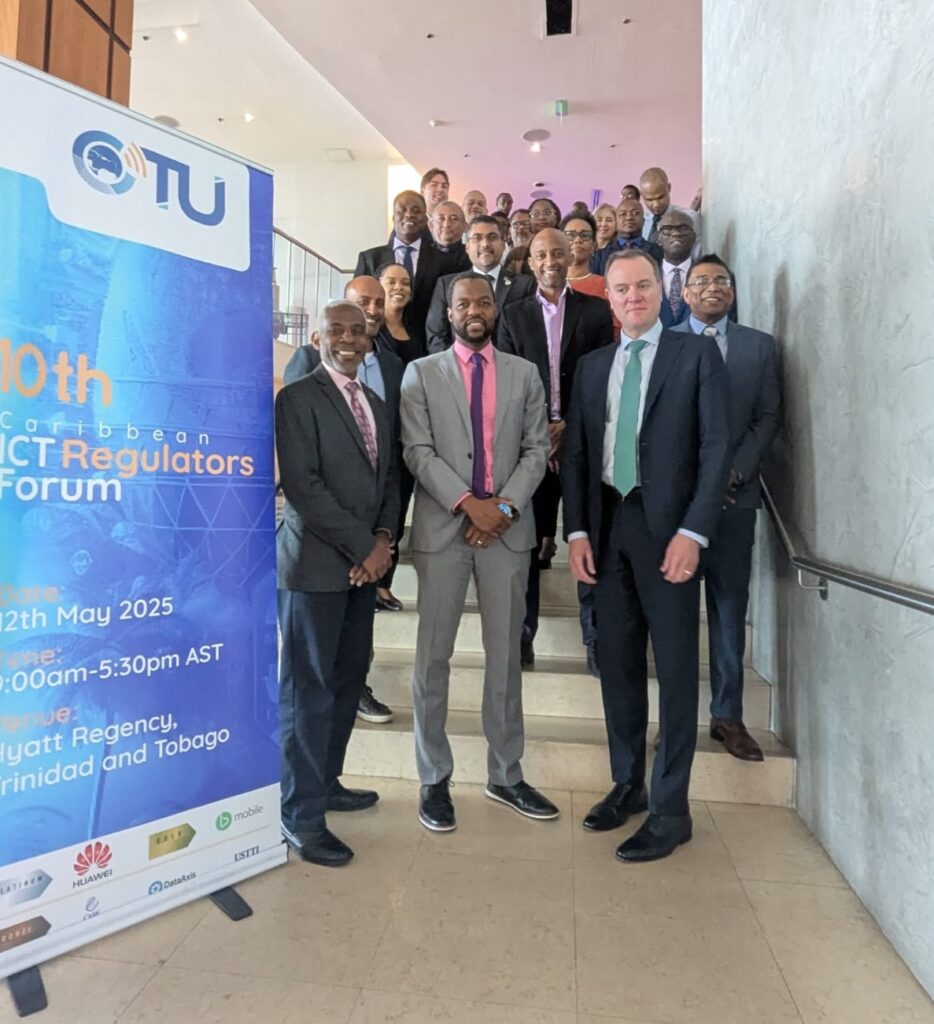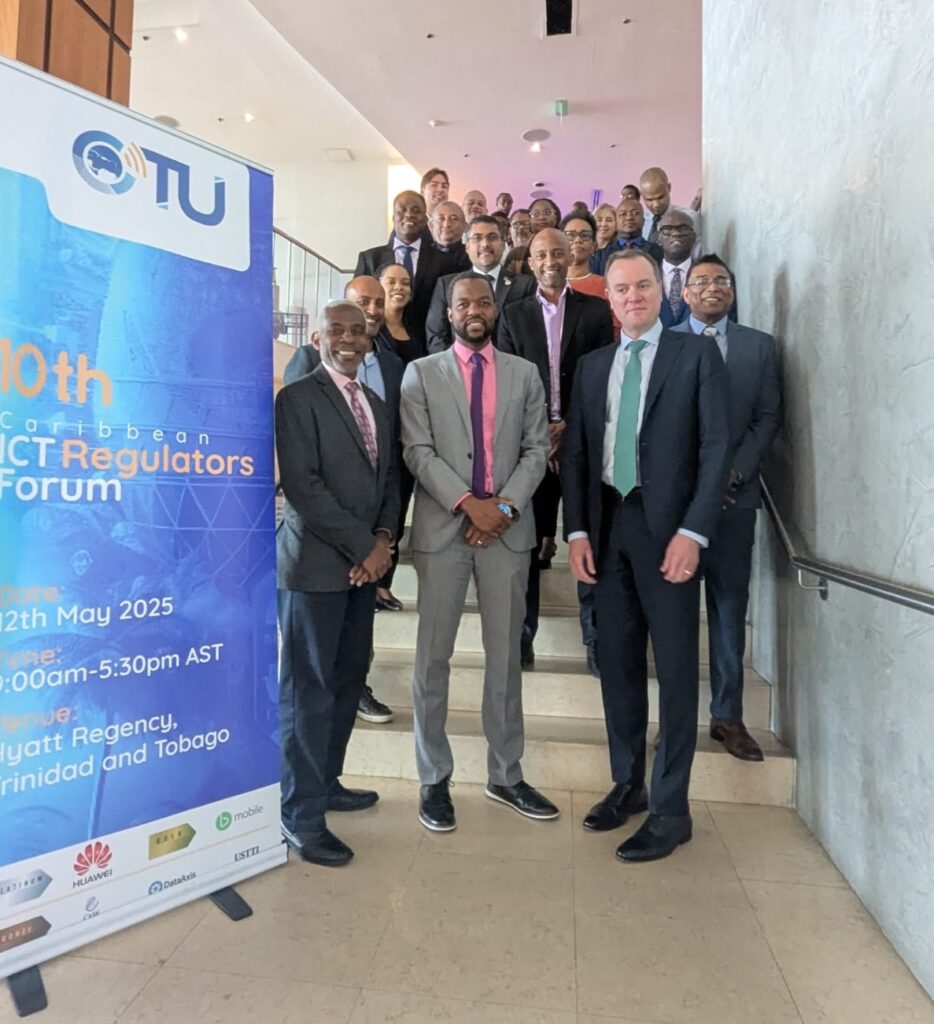Port of Spain, 12th May 2025

Good morning, and welcome to our 10th Caribbean ICT Regulators Forum. Im sorry I could not be there in person with you due to commitments here in Barbados but I will be joining the session of the SMTF on Friday when I return.
I want to thank all of you for your support of this forum, our Caribbean regulators, with a special thanks to TATT for hosting us this week, to our sponsors and strategic partners such as the United States Telecoms Training Institute (USTTI), FCC, ITU. Let me also take the opportunity to congratulate Mr. Kurleigh Prescod, newly appointed CEO of TATT and we ate the CTU wish you much success in this new role. Kurleigh and I also met the newly appointed Minister responsible for Public Administration and Artificial Intelligence just last week Friday, Senator the Hon. Dominic Smith to brief him with resect to our respective mandates.
A very special thanks also to Mr. Aliyu Yusuf Aboki, Executive Secretary – West Africa Telecommunications Regulators Assembly (WATRA) for joining us virtually. It is my hope that we can collaborate more closely with Africa and in fact I have extended an invitation to the Secretary General of the African Telecommunications Union to join us for ICT Week in Jamaica at the end of September. Mr. Aboki, I want to be very clear that you are also welcome to join us in Jamaica as we seek to solidify our working relationship with our counterparts in Africa.
At the CTU, we have sought to champion the cause of regulatory harmonisation, recognizing that a fragmented regulatory landscape can impede our region’s progress. Hence, this forum represents the 10th such meeting of Caribbean regulators under the auspices of the CTU. To be very clear, our mandate is regional ICT policy development and coordination. However, the link between policy and regulation is undeniable.
Policy sets the overall goals and direction for technological development, while regulation provides the specific rules and enforcement mechanisms to achieve those policy goals. In essence, policy defines what we want to achieve with technology, and regulation dictates how we get there. So the closer we can work together, the better it will be for the Caribbean. We have looked at ECTEL for example as a good model and really the question is how we expand that remit to the rest of CARICOM and what that regulatory framework might look like. I want to thank Michel Marius, who has been working with us, with the support of the ITU in this regard.
The imperative of regulatory harmonisation becomes even more critical, particularly as we talk about advancing 5G deployment across the region. Harmonising regulatory frameworks across jurisdictions is not just a desirable goal; it is a strategic necessity.
However, harmonisation alone is not enough. We must also regulate at the speed of change. The rapid evolution of digital technology demands regulatory agility. Whether it is in addressing emerging 5G use cases or responding to the rise of new satellite technologies, we must cultivate frameworks that are both adaptive and forward-looking. The CTU has been at the forefront of advocating for such frameworks, promoting regulatory best practices that enable innovation while safeguarding the public interest.
In the Caribbean, universal service remains a persistent challenge, particularly in our underserved and remote communities. We have seen significant progress in Guyana and other jurisdictions with the use of LEO satellites to close these connectivity gaps. The emergence of LEO broadband presents a promising opportunity. By delivering high-speed connectivity to hard-to-reach areas, LEO technology can significantly close the digital divide. But with new technology comes new regulatory considerations. How do we integrate LEO broadband into our universal service obligations? How do we ensure affordability and accessibility without compromising quality? How do we effectively curtail the use of unauthorised terminals in this space so that everyone plays by the same rules.
Looking ahead to the ITU World Radiocommunication Conference 2027 (WRC-27), the Caribbean must strategically position itself on key agenda items that will shape the region’s telecommunications landscape. Issues such as the identification of new frequency bands for IMT, spectrum allocation for satellite communications, and the development of frameworks for LEO and direct-to-mobile services are particularly relevant. I want to make an early appeal to our regulators to support the development of our Caribbean Youth ICT Network, and women in this space, by way of capacity building opportunities, internships, support for their participation in international policy development processes such as the WRC, GSR and ITU Plenipot. We have some brilliant young people here and we just need to give them that early exposure and I am confident that it will have a positive impact on our region as we go forward.
In conclusion, today’s discussions provide a valuable platform to address our interconnected challenges holistically.
I want to thank you for your continued partnership and commitment and I extend a warm welcome to all of you and I hope to see some of you in-person on Friday. I wish you very engaging discussions this week!


